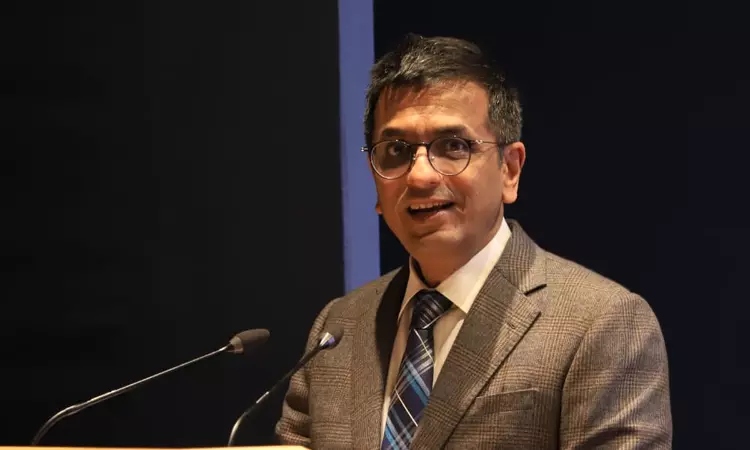
Chief Justice of India D Y Chandrachud on Saturday emphasized the necessity for juvenile justice systems to adapt by improving international cooperation and sharing best practices to combat the escalating transnational digital crimes involving minors, amidst the rapid evolution of technology.
Chandrachud, currently on a three-day official visit to Nepal at the invitation of Chief Justice of Nepal Bishwombhar Prasad Shrestha, addressed a National Symposium on Juvenile Justice.
He stated, “When discussing juvenile justice, we must acknowledge the vulnerabilities and unique needs of children caught up in legal conflicts and ensure that our justice systems respond with empathy, rehabilitation, and opportunities for reintegration into society.”
“It’s crucial to grasp the multifaceted nature of juvenile justice and its intersections with various dimensions of society,” he emphasized.
Chandrachud noted that with technology evolving rapidly, juveniles are increasingly involved in cybercrimes such as hacking, cyberbullying, online fraud, and digital harassment.
The anonymity and accessibility of digital platforms lower barriers to entry, attracting young individuals to illicit activities. As an example, he mentioned the “Momo Challenge,” a viral hoax that spread through social media platforms in 2019, targeting children and adolescents. This hoax purported a series of escalating dares, including self-harm or suicide, although it was later debunked.
“Its rapid dissemination highlights the susceptibility of juveniles to online dangers. There is a need for proactive measures to educate and safeguard young individuals in the digital age, emphasizing digital literacy, responsible online behavior, and effective parental guidance as crucial components in mitigating cyber-related risks,” the CJI said.
He added that juvenile justice systems must adapt by enhancing international cooperation mechanisms and sharing best practices to address the transnational nature of digital crimes involving juveniles.
“The Chief Justice emphasized the importance of establishing protocols for extradition and repatriation, along with facilitating information sharing and cooperation among law enforcement agencies,” CJI said.
At the domestic level, he underscored the necessity of specific training in child protection rules to ensure that all stakeholders within the juvenile justice system possess the requisite knowledge and skills to safeguard the rights and well-being of children.
This training should cover various aspects of child protection, such as understanding child development, identifying signs of abuse or neglect, and acquainting oneself with relevant laws and procedures. Furthermore, he highlighted the incorporation of principles of trauma-informed care into training programs, stressing the significance of sensitivity and empathy towards juvenile offenders who may have endured adverse experiences.”
Chandrachud emphasized, “Often, we prioritize the offenses committed by juveniles over considering their reformation. Therefore, it is crucial to recognize the intricate nature of juvenile delinquency and adopt a comprehensive approach that tackles the underlying socio-economic factors contributing to such behavior. Through investment in preventive, interventionist, and rehabilitative strategies, we can foster a society that is more inclusive and offers every child the opportunity to realize their potential,” remarked the CJI while assessing the juvenile justice systems of India and Nepal. He underscored the pivotal role of juvenile justice in shaping a just and equitable society by focusing on reformative measures.
By prioritizing the welfare of children and providing access to rehabilitation and support services, juvenile justice systems contribute to creating an environment conducive to the overall growth and development of young offenders, Chandrachud added.




